Malina Suliman's First Visit to London
Art Represent launched its inaugural exhibition in May this year titled Beyond The Veil – A Decontextualisation. Not only was it a first for our gallery space in Bethnal Green, but it was also the first UK solo exhibition of Afghan artist Malina Suliman.
Malina was born in 1990 in Kandahar and she has emerged as not just one of a very small number of artists coming out of war-torn Afghanistan, but as one of the only female artists. After studying Fine Art in Pakistan, she attended a street art workshop given by veteran British graffiti artist CHU and went onto becoming one of the first street artists in her hometown.
Malina’s work has been little known outside Afghanistan but it has made waves back home, where she has been an advocate for women’s rights and the struggle of artists working in and amongst the turbulent socio-political landscape.
We teamed up with Malina to provide her with a platform to showcase her work in our space in East London and provided her with funding, resources and a support system so she could bring her installation to life. With everything going full steam ahead, our team in London worked tirelessly to make sure her installation was coming together in keeping with her artistic vision. We were incredibly excited to bring her over to London for the launch of her exhibition and to introduce her to her new international following. However, after a nail-biting few weeks, issues with her visa meant we were unable to have her with us for the opening.
It was only much later that Malina’s visa came through. Although not according to plan, we thought it was imperative for her to come to London and be able to witness the overwhelming responses we were receiving from visitors, academics, the media and Afghans living in London. With that in mind, we flew Malina over for a few days to have her experience the incredible impact her work was making in London.
When making the initial plans around the launch of the exhibition, we had arranged a talk in conjunction with the Afghan Society at The School of Oriental and African Studies, University of London. However, due to Malina’s visa not being issued in time, the talk was cancelled. We were therefore very pleased to have the opportunity to rearrange the talk at SOAS on quite short notice where Malina and the Afghan poet, screenwriter and journalist Karim Haidari could engage in a conversation with Dr James Caron about the state of the arts in Afghanistan.
This was a fantastic opportunity for an intimate public discussion with two individuals whose work deals with the themes of ‘Art and Identity’. The talk was incredibly engaging and they both touched upon the lack of cultural infrastructure in Afghanistan, the broader context of art in times of conflict, its role and its constraints, art in the East and how it is perceived in the West and most importantly for Malina, it gave her a chance to speak freely as a female artist coming from a patriarchal society.
At a time when there has been a great deal of discussion about the role of women in art, it was an occasion for us to hear from Malina what she felt about the role female artists can play in challenging stereotypes, creating a dialogue and how art can be used as a tool for observation and change. What we had scheduled as a two-hour event carried on for a third hour with the audience staying behind, eager to speak to Malina further.
As part of her visit, we felt it would be wonderful to host a special evening preview as a substitute for the launch event Malina was unable to attend. We invited a host of curators, gallerists, collectors and visitors who had expressed a strong interest in the show to attend so they could meet the artist but also in order for Malina to hear from her audience.
One comment which seems to have stuck in all our minds came from an Afghan student currently living in London who expressed that she was incredibly inspired by Malina, since she could only imagine how incredibly difficult it would have been for Malina to get to a point where she was able to have a solo exhibition in London, and for that, as an Afghan woman, she was really proud.
We were particularly thrilled that as a result of the event, Malina and Art Represent were asked to loan a section of the Beyond The Veil installation for International Alert’s upcoming #Art4Peace exhibition which uses the power of art to inspire conversation about peace and conflict issues around the world. Her video pieces from the exhibition will be displayed amongst the work of leading artists from the UK, France, Egypt, Israel, Chile, Poland, Nepal, Italy, Syria and Denmark.
Given the powerful statement Malina has made as an Afghan artist, it was no surprise that we received strong interest in her work from international media. During the exhibition, her installation received coverage from The New York Times, The Art Newspaper, Sky Art in Italy, O Globo in Brazil along with a host of other media. However, due to the fact that her work is considered contentious and her family still live in Afghanistan, we have had to be very careful in ensuring that the press report on her with incredible sensitivity.
We spoke to various news outlets and arranged interviews for her with Channel 4 News, CNN International and BBC World Service. This would give Malina a chance to tell her story and spread awareness about her work and experiences. We hoped this would accelerate her career but also bring to attention the incredible work being produced in Afghanistan, a country whose artists are seldom exhibited on an international stage, nor given the recognition or opportunity they deserve.
As we close our inaugural exhibition, the team looks back on how long the journey was, and how much we have learnt from the experience. Whether it was arranging for materials to be shipped from Kabul to Europe or finding women in the Netherlands who would be willing to walk the streets in full burqas. The experience has taught us about the importance of ensuring not only do we support our artists and keep their vision at the centre of everything we produce, but that at the end of the day they can experience what they have achieved and the impact that they are making in distant communities. We hope our exhibition will pave the way for other artists like Malina who have a bold vision and strong voice, to showcase their work outside Afghanistan and to continue to inspire through their work.
Find out more about our inaugural exhibition here.
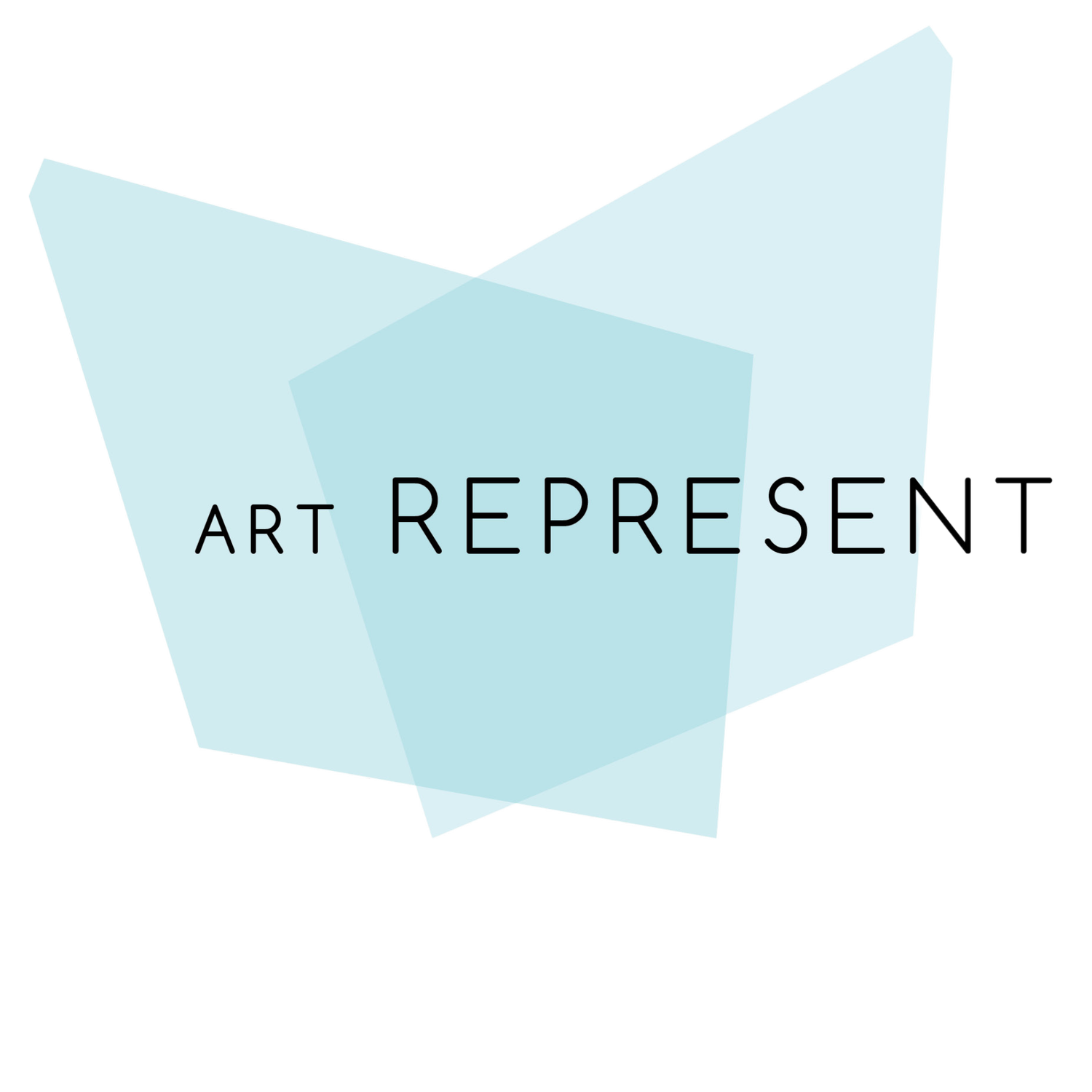


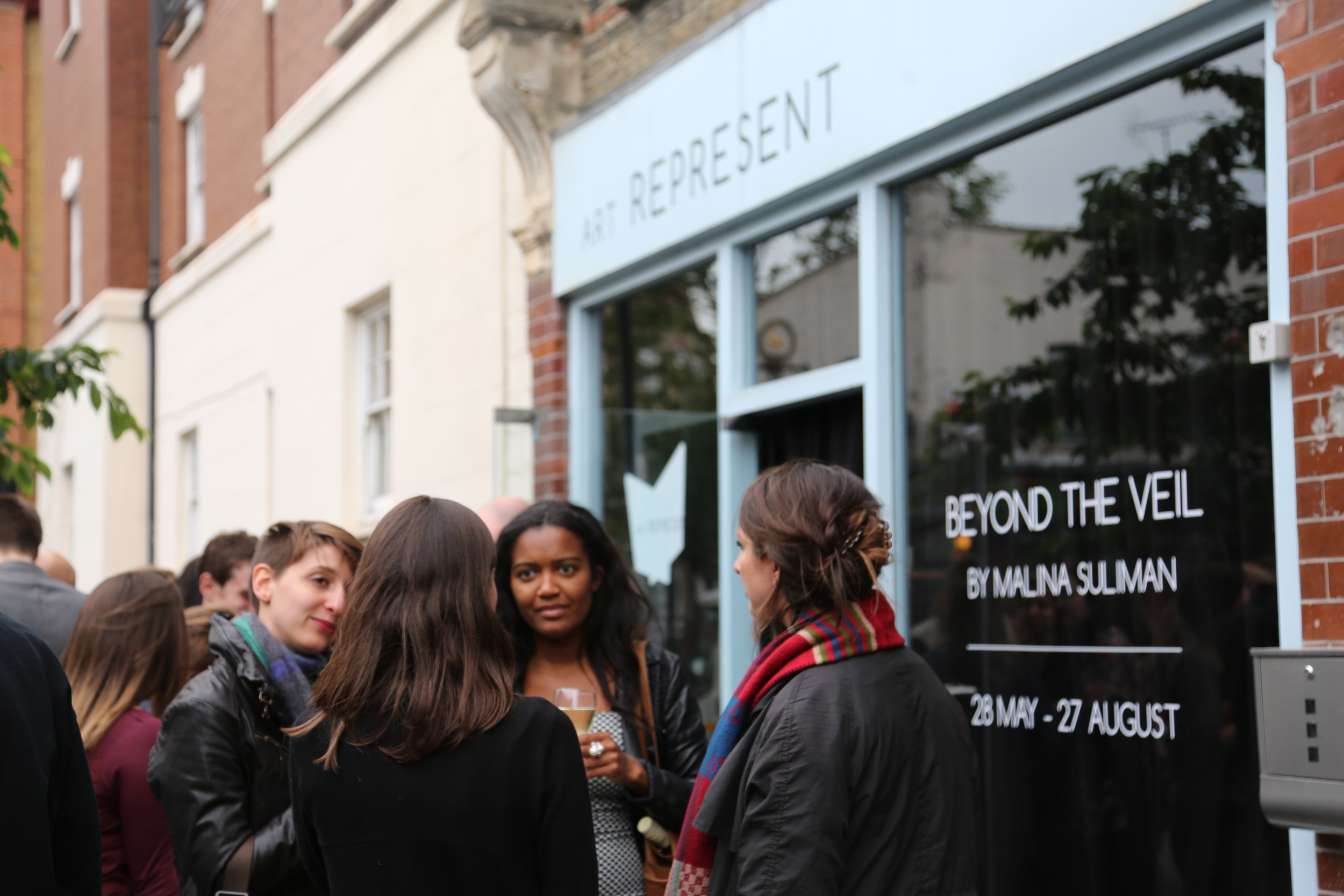
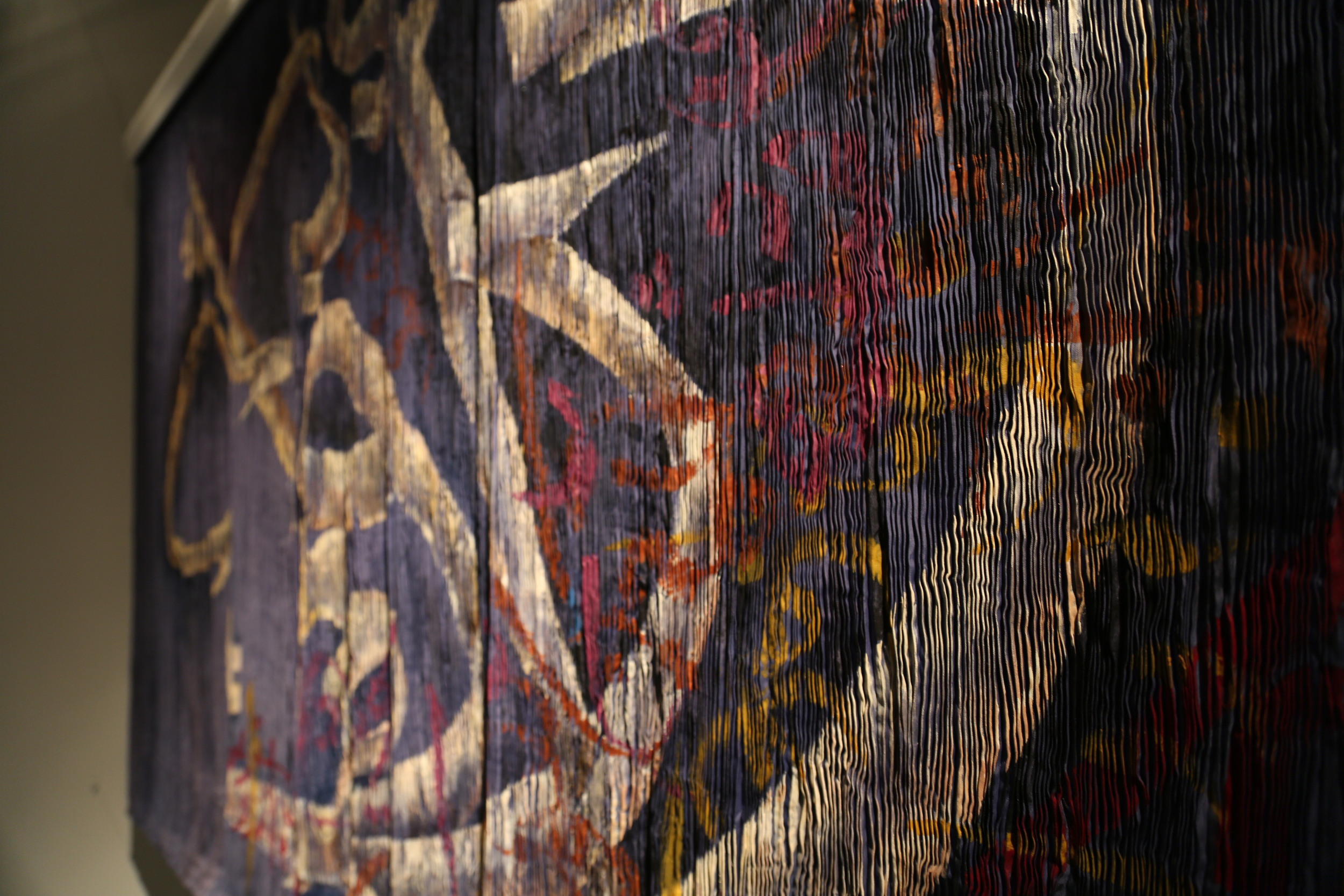
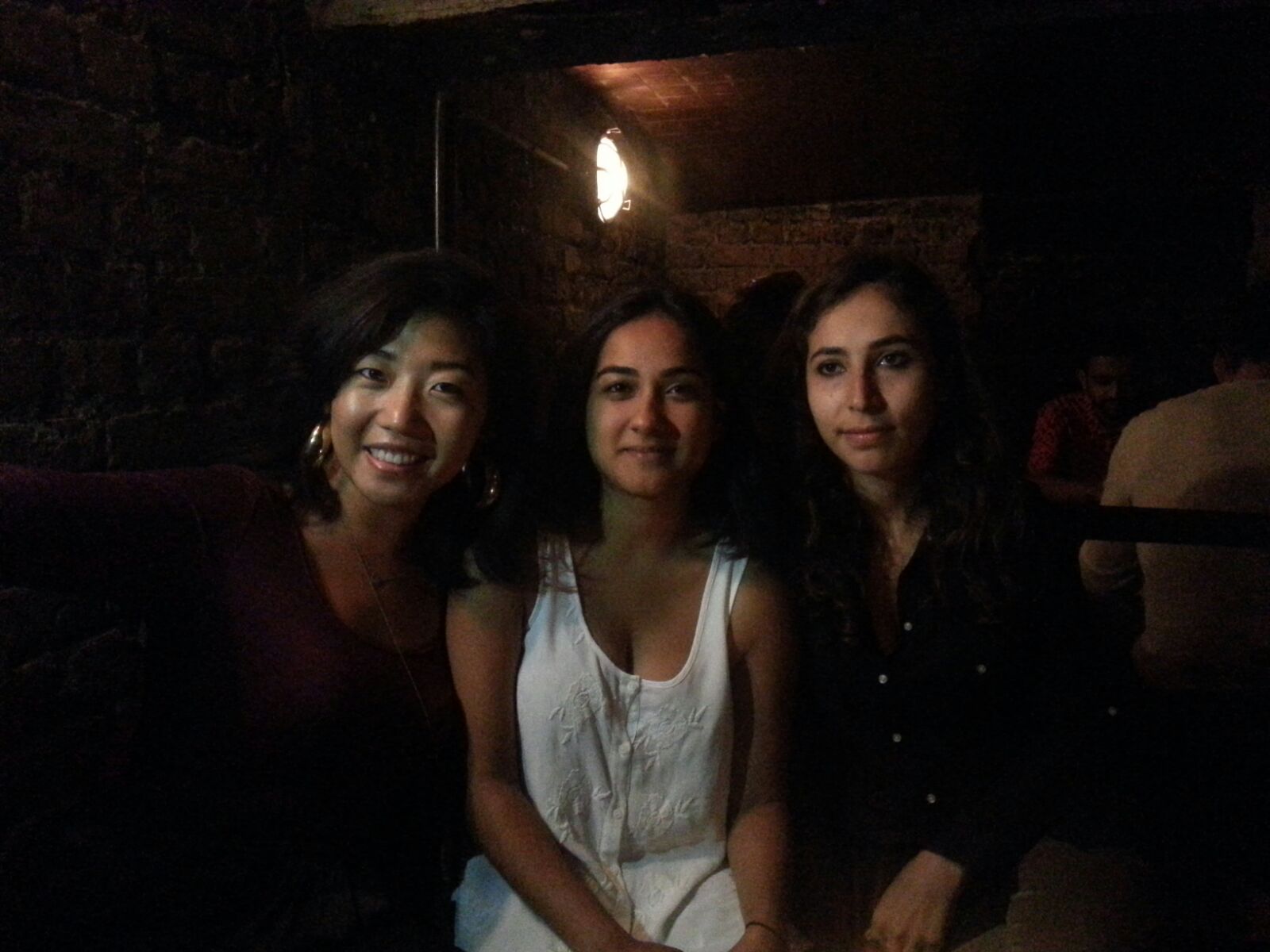
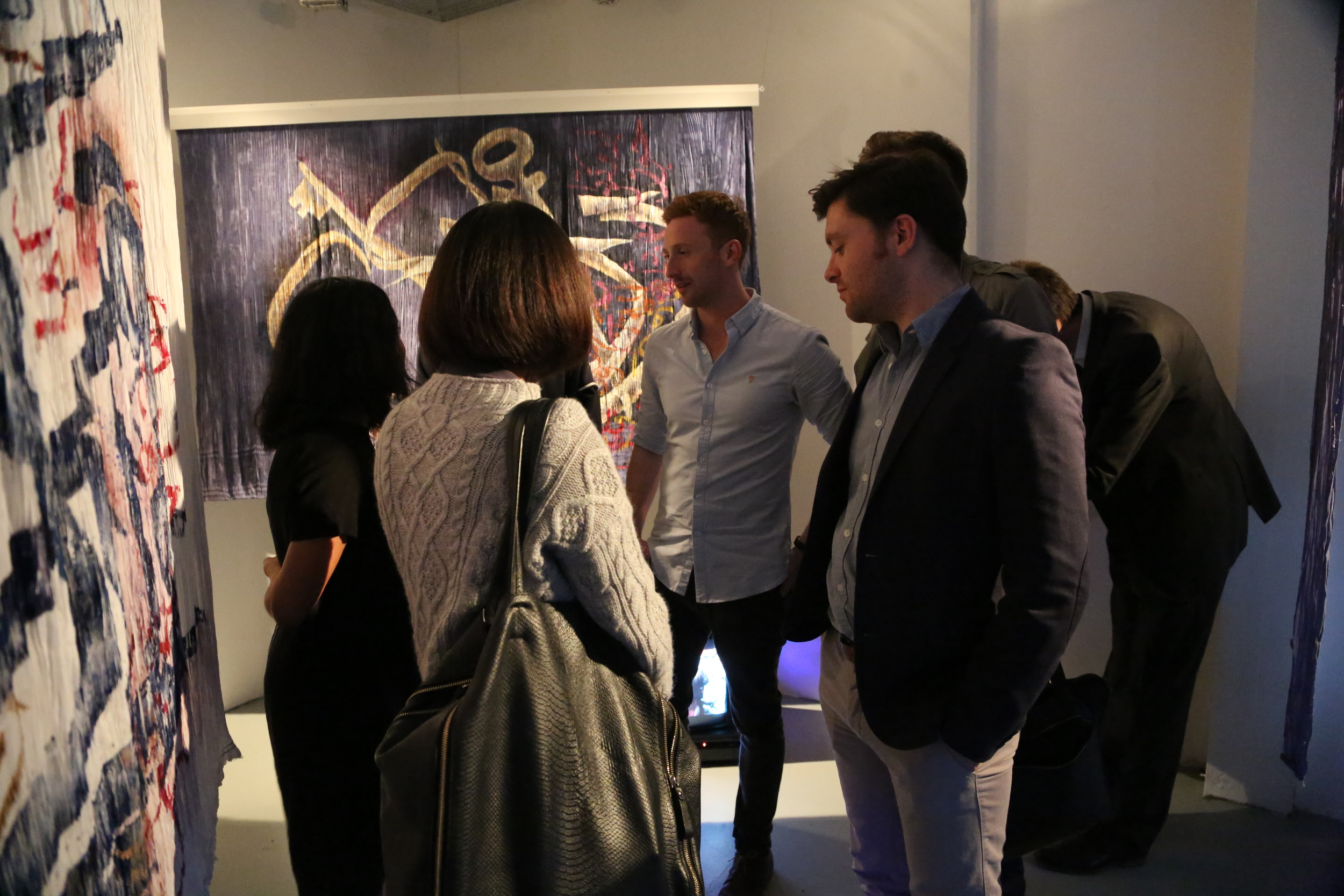

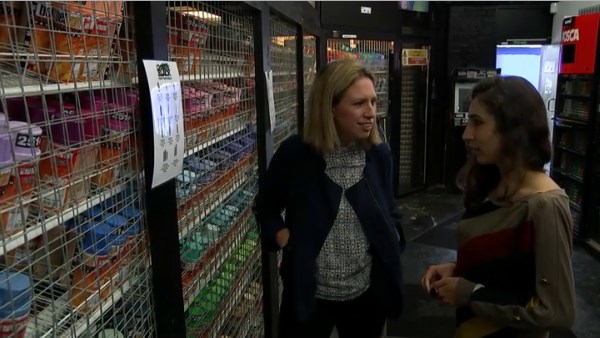
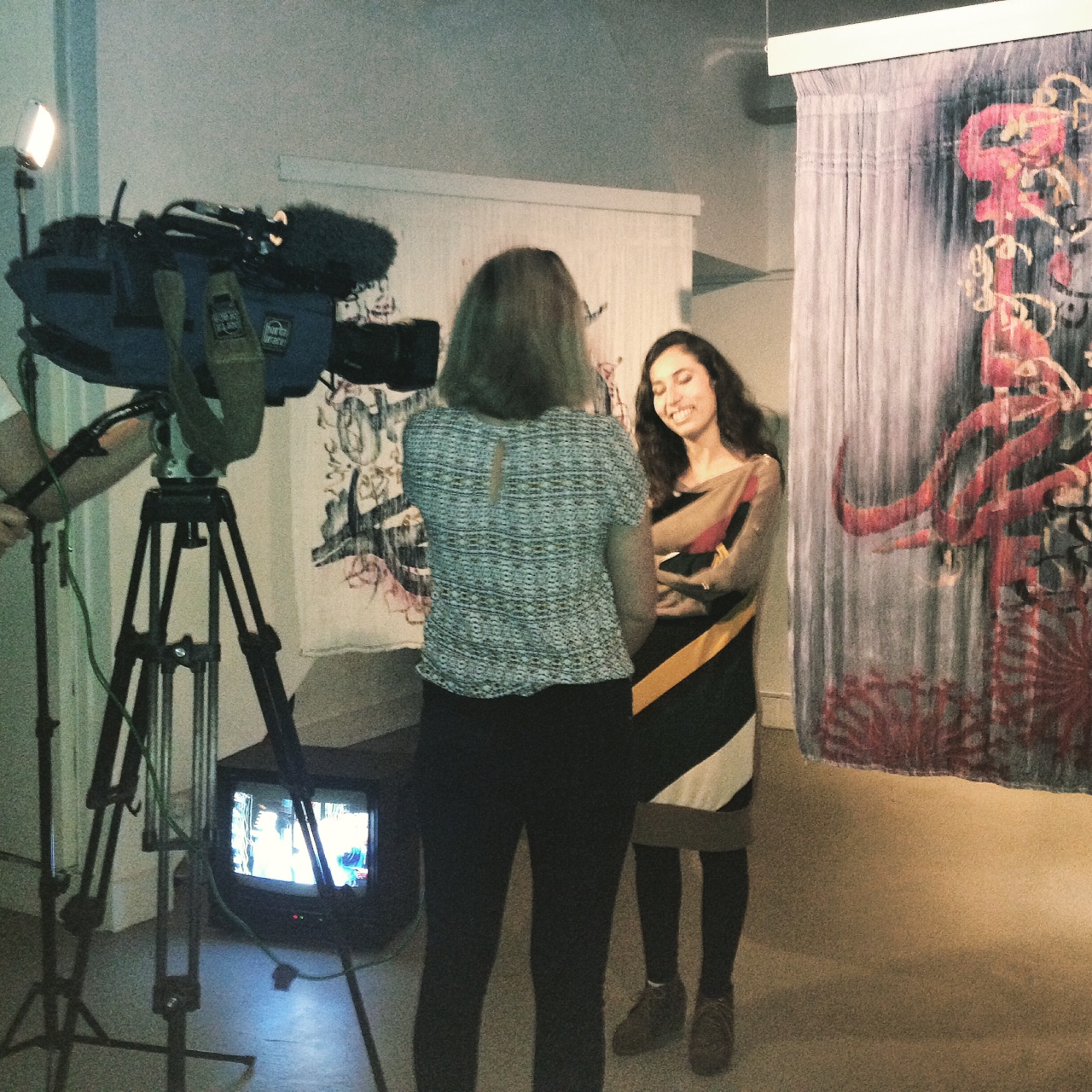
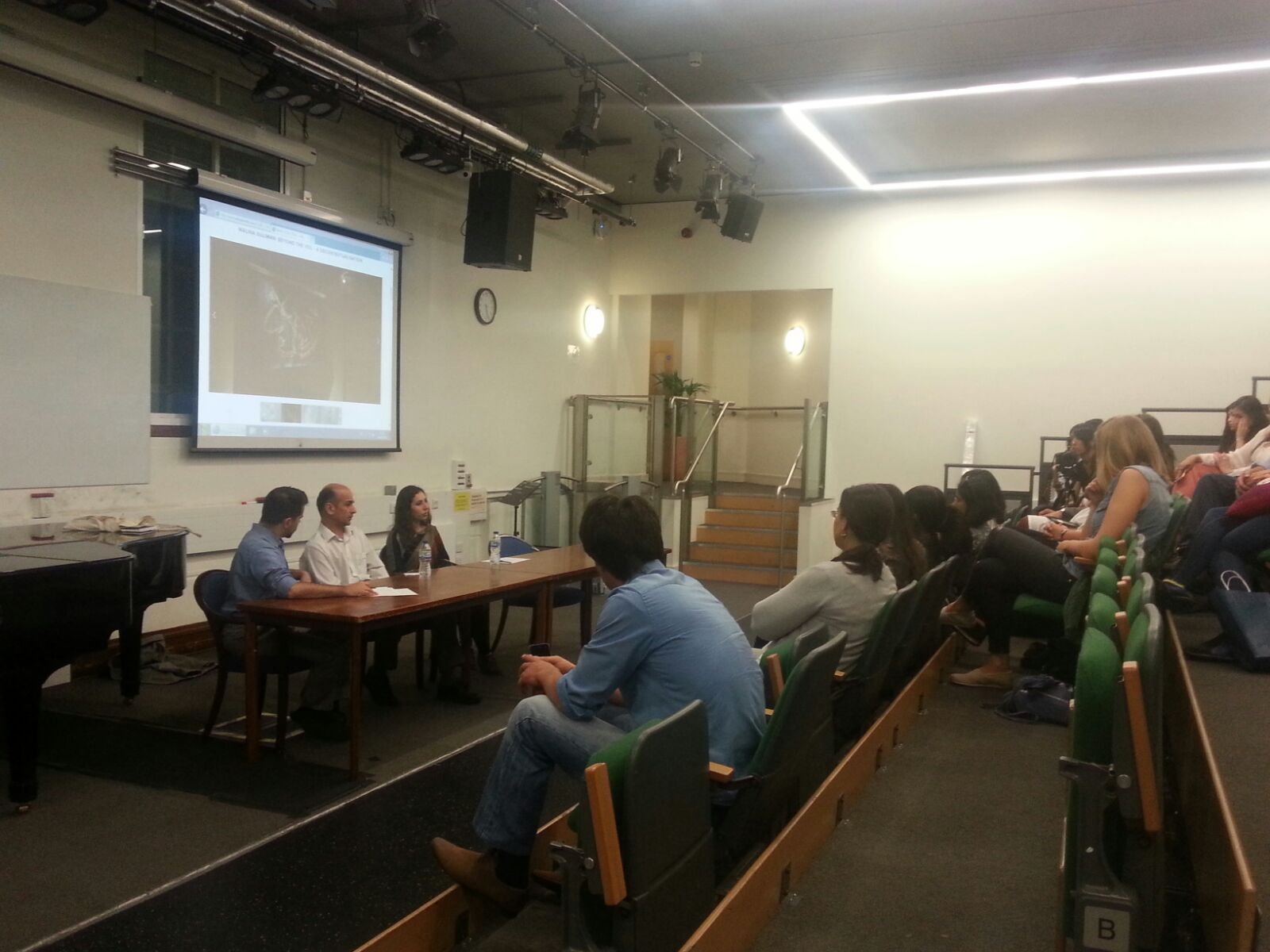



February 9 marks the anniversary of the Iranian Revolution or the Enqelāb-e Eslāmī. We hear from our collaborating artist, Firouz Farman-Farmaian about his practice. Highlighting in particular, his work Enghelâb ( Revolution ), in complete alignment with ongoing events in his home country.